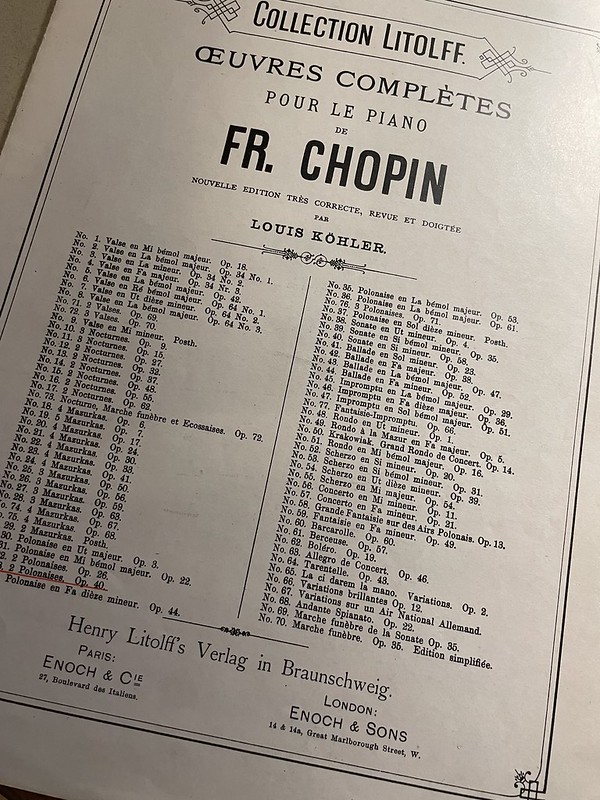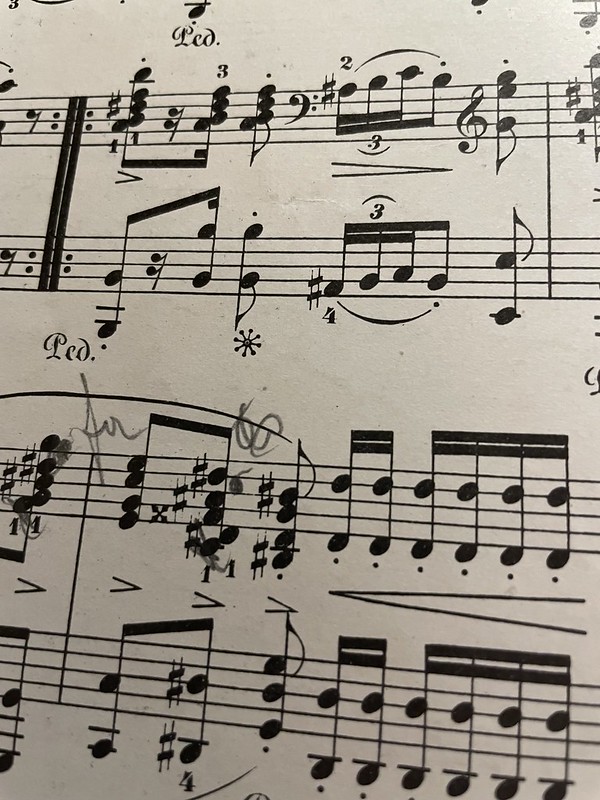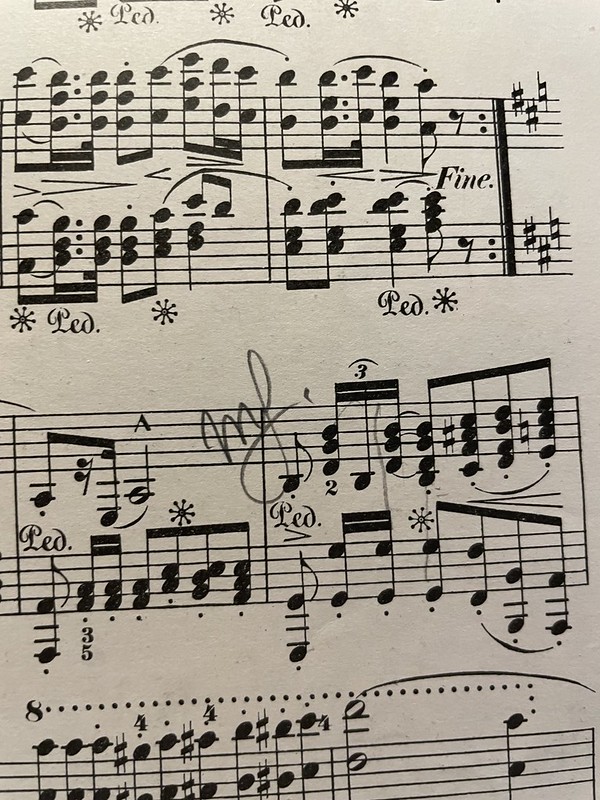It’s lunchtime on a Saturday afternoon, and my flight has been delayed over an hour. There isn’t a piano here (CORK Airport in Ireland, hint hint) and I’ve already spent a chunk of time considering exciting philosophical discussions like, will I sign up for Josh Wright (well I just signed up for ToneBase, so do I need another one?) or, should I upgrade my digital piano? I’m about to sign up for more Pianoteq voices anyway. I’ve scrolled through r/piano, and I have idly considered looking at piano world. I have sheet music with me and because I haven’t been playing much, I haven’t been writing much about playing yet.
One of the items on my “Maybe Do List” is to build a YouTube channel to accompany the blog. It seems like madness, because I assume the only person who looks at this site much is myself. So I am thinking about that. But I’m not the kind of person who can build a viral video channel about the piano. You need to look at what I would be up against – there are a couple of very good sites with mediocre numbers – Sebastien Dupuis does great content but he’s not got the numbers of say a TwoSet or Denis Zhdanov. There’s a lot of audience for the synthesia and while I think it looks engaging, I can read music, and synthesia makes no sense to me. I love Annique Gottler’s One Minute Ten Minutes One Hour challenges – I think they are a great idea.
But hardly a unique selling point for Concerto in C Minor. I like a lot of the other teachers like LeCheile and Josh Wright too. Not such a fan of Jazer Lee. I’m also only a young/un if you are over the age of 60 and I’m never going to be a concert pianist (hold that thought…)
So my market segment would probably be the “Middle Aged Regretful Pianists Who Could Have been a Contender”.
I need to think about that of course. Put a mind map together, find a useful name for the channel that slips off the tongue. Do Shorts. Join TikTok although I’m not sure so many of old fogies are on TikTok. I might think about it when I am on the plane again.
While I was considering the Josh Wright angle this morning (Black Friday does this to you), I went looking for reviews of his premium offering (I’m in favour of life time offers) and came across a discussion on realistic aspirations and telling the vast majority of pianists they will never be a great concert pianist.
When you spend any time on the internet at all, you run into the whole idea of why people are motivated to do things. I see it with running, I see it with swimming. I don’t see it with knitting for reasons which remain unclear although it’s possible that there are other issues there if r/craftsnark is anything to go by.
The vast majority of people don’t really want to be concert pianists, I think, They want respect, adulation, if it’s going. But they are happy to come home, play a bit of Chopin and day dream. A lot of discussions around teaching/learning are not based on this reality. It’s based on the idea – especially for young people – that the only reason you would do this is for purely competitive reasons. Be a great concert pianist.
It’s not why I do it. I do it because I actively like playing. I mostly play at home, alone for escapism. If I am doing the ABRSM grades at the moment (and god is that going slowly for the time being), it’s not because I want to be a concert pianist. I have played piano in concerts. I have stage fright. My absolute zen place is playing a beautiful piano in an empty concert hall, which I do every once in a while. Everyone is different, I guess.
There’s an element of elitism around the discussion sometimes. I’m generally in favour of people learning to play the piano properly, like, using sheet music or their ears like God intended (I don’t have any truck with synthesia at all), but after that, if you want to play Jingle Bells, knock yourself out. It’s every bit as valid a motivation as Un Sospiro is.
There are a couple of people just streaming practice sessions – I’ve listened to a guy playing scales every night for a while. I don’t much like his camera set up but I like the idea that he uses this for accountability.
The vast majority of people who play the piano past the age of 18 are in it for reasons that cannot be summed up as “I want to be the next Yuja Wang”. Don’t get me wrong – some of them are exceptional pianists who have worked for years on their Liszt and Islamey if they are particularly masochistic – but being a concert pianist is a whole host of other things besides playing the piano. It is often, playing music you don’t much like. It is playing music that puts people in the auditorium. There is a whole administrative/costly side in terms of managing agents, record companies, tax liabilities, and your pianos. I sometimes think that gets forgotten.
You see it with sports too. We’re only interested in the ones who are winning races and yet humanity as a whole benefits hugely if we encourage people to get exercise throughout their lives without the added pressure of winning something. I honestly think the win at all costs attitude sucks. Every person benefits by going running if their frame is up to it, without the motivation of winning a race.
Anyway, I think the first thing we need to do is get people enjoying what they are doing, while being open to getting better all the time.
In other thoughts, I also happened across a weirdly common theme of whinging about Lang Lang (actually I need to check if I have written this bit before – it seems not).
I’ve seen Lang Lang in concert. He played the Chopin ballades and I think some preludes. It was a remarkable concert; he is a wonderfully talented pianist who takes an immense amount of pleasure in playing the piano. I was left with the impression that he considers it an immense privilege to be able to play and that people actively want to come and listen to him. What I consider to have been completely absent from his performance that night was any arrogance or undue showiness. I’ve seen the argument that he is an entertainer, not a musician. So let me put it this way: all professional musicians are entertainers. Daniel Barenboim – whom I have also seen in concert – is an entertainer.
They don’t earn money otherwise.
What I particularly appreciate about Lang Lang is that he places a massive amount of importance in enticing other people to play. It’s why he has a really well thought out sheet music collection for people who want to play the piano. It’s why he plays some wonderful music from Disney movies. I’m looking forward with interest to hearing how he handles Saint-Saens No 2 which is one of my favourite concertos.
The thing is he, and Yuja Wang, kind of stand out as the first great, great Chinese concert pianists. I sometimes wonder if they earn greater attention because they are not white men pianists from patrician backgrounds. You see it with women in general – often held to much higher standards purely for being women than corresponding men are. There is a famous study on recruiting women to orchestras.
Playing the piano is very much subjective. It’s for this reason I listen to several recordings now of any piece I am earning. Key example at the moment is Le Cyclopes by JP Rameau. My preferred version of that is Vikingur Olafsson’s recording. It is imperious and bright. I also listen to Grigory Sokolov’s arrangement of it too which is less emphatic, but no less compelling. I wonder how they approach this. On a far less ambitious level, I am working on one of Mendelssohn’s Gondola songs at the moment (I have plans for an entry for that but currently lack the time to build it). But I look at the story I want to tell myself there. I see the gondola on the canals of Venice. I have a story being described. [Procreate Dreams has been released so I will learn to animate]. Is the story that Vikingur tells very different to Grigory’s film? I don’t know.
But I have to think about this.
All that to say though, that no one really has the definitive view of how to play the piano and some randomer on Reddit or PianoWorld isn’t really the sole arbiter of anything. Liberace and Viktor Borge were complete entertainers but they had the classical chops too. Not one or the other.
Which takes me back to the question of what do I do about a video channel? I don’t know. Ultimately I’d like people to want to play the piano after watching it. But not to constantly demand Misty as one young man called Craig did to me in a bar in Germany one night when I was 18 years old. Play Misty, Treasa, can’t you play Misty?
I still have no idea how to do it so, sorry Craig, it is not going to happen.





